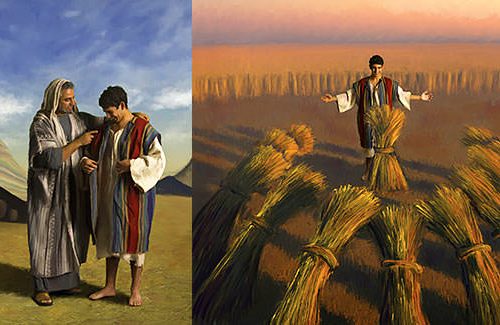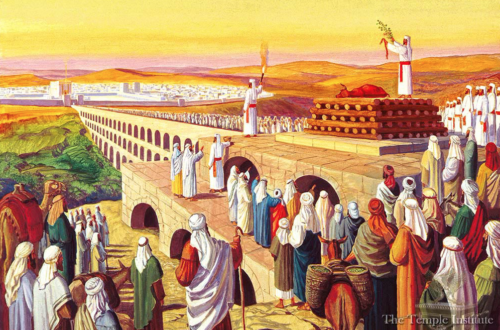Paradigm Shift
Personal Note: It has been a while since my last post. A great deal has been going on, but rest assured I have not forgotten the readership here and for those interested I do plan to continue this study of the minor prophets. What follows is the next installment in the Hosea series…
Personal Note: It has been a while since my last post. A great deal has been going on, but rest assured I have not forgotten the readership here and for those interested I do plan to continue this study of the minor prophets. What follows is the next installment in the Hosea series…
Paradigm Shift
The first three chapters of Hosea use the allegory of a marital relationship to illustrate God’s unfailing love, compassion, and ultimately forgiveness. He looks forward to a time of personal repentance by individual believers and restoration of the kind of the intimacy between Himself and His people we were created for.
The remaining chapters of Hosea, written in a poetic literary form, send a prophetic message to Israel regarding its religious, social and political failures and the consequences. It is important to remember that in spite of the political turmoil in the last few decades prior to the fall of Samaria, the region experienced significant economic prosperity. As the people became increasingly smug in their self-confidence they came to rely less and less on God as provider. They essentially ceased to need God, or so they thought. In the remaining chapters the case is made for Israel’s guilt and judgments are proclaimed. These chapters include a powerful call to repentance, a reminder of God’s unfailing love, and eventual restoration of the faithful.
Moral Bankruptcy
Hos 4:1-2 Hear the word of the Lord, O children of Israel, for the Lord has a controversy with the inhabitants of the land. There is no faithfulness or steadfast love, and no knowledge of God in the land; there is swearing, lying, murder, stealing, and committing adultery; they break all bounds, and bloodshed follows bloodshed. For nearly two centuries Israel consistently grew more and more worldly. Hosea is warning them that God has had enough. The first charge is that they have forgotten God. He then goes on to charge them with a variety of broken commandments. We break God’s laws when we turn from Him and abandon our relationship with Him. If the kings, priests and people loved the Lord they would seek to find and follow His commandments. In their abandonment of God they grew more and more wicked until they became little better to God than the surrounding nations. Western civilization, however imperfect, has had the powerful influence of Christ through the church in its development for many centuries. By nearly any measure it can be shown that Christianity is growing weaker by the day in America and much of Europe. In its place we see love for fellow man replaced by corporate greed and political corruption. One war follows the last with every form of evil and bloodshed following bloodshed.
Emptiness
Hos 4:3 Therefore the land mourns, and all who dwell in it languish, and also the beasts of the field and the birds of the heavens, and even the fish of the sea are taken away. Everyone sees and turns their back on the evil of Israel. There is great suffering because of the sin in Israel. The moral decay of Israel is pictured as a sadness that drives away what little good there is left. When you think about the moral decay of western civilization in recent decades it is equally fascinating to see the explosion of faith in other parts of the world like Africa and parts of the former Soviet Union. Although the communist government of China persecutes the church there, faith in Christ is growing behind closed doors across Asia. Missionaries are leaving America and Europe. It is as if the faithful are leaving the decadence of material wealth and moral bankruptcy to seek out lives of material humility and moral wealth elsewhere.


